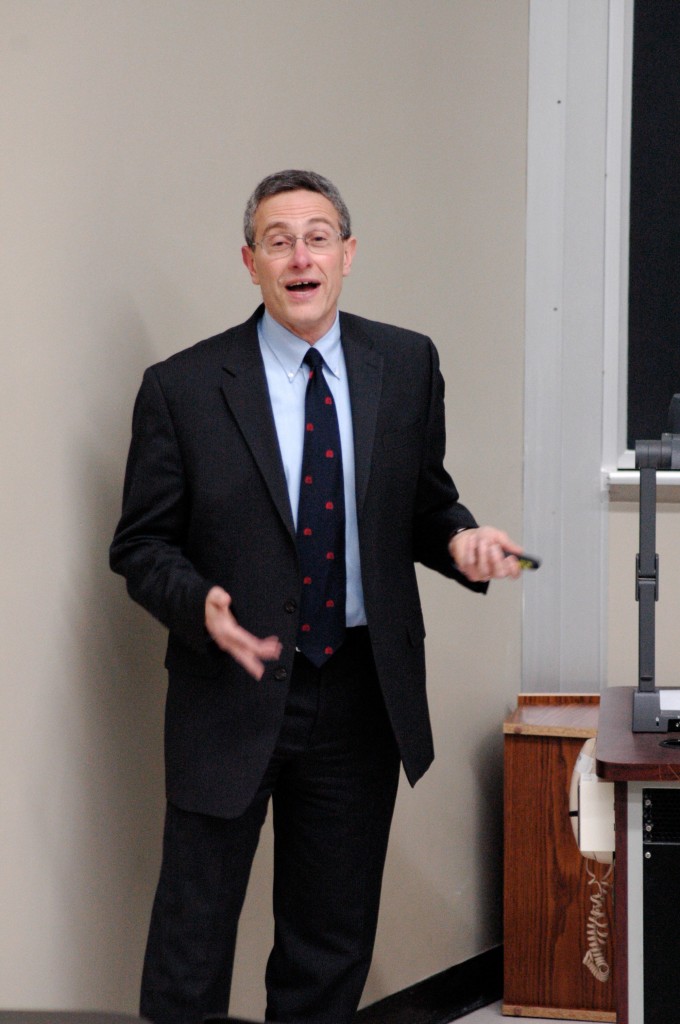
Pulmonologist Gilbert Witte, who graduated from Binghamton University in 1976, visited campus Friday to speak to students and faculty about the road leading to his career in medicine.
He explained that although he moved seamlessly from college to medical school and, ultimately, to pulmonology, he believes that undergraduate students should not be rushed into making crucial decisions about their future careers.
“I wasn’t really sure what part of medical school I really wanted to be in,” Witte said, “and again — I don’t feel you have to decide everything about your life in an early stage.”
Witte said he chose to go into pulmonology to use his skills in both mathematics and hands-on patient care.
Witte recalled his experiences as a medical student at Tufts University, from which he graduated in 1980, and spoke to the audience about how his role in the hospital changed as he progressed through his residency and fellowship.
“I probably worked a hundred hours a week for three years,” he said. “First-year residents, they really take care of the patients. You really quickly acquire responsibility and learn. It’s really exciting, and you learn a lot in a relatively short time.”
Following his education at Tufts, Witte completed his internship, residency and fellowship over five years at Burlington, where he received certifications in pulmonary disease, internal medicine and critical care medicine.
Witte resides in Olean, N.Y., and is the pulmonologist for Olean Medical Group. On top of the work he has in his office and in hospitals, Witte also takes care of patients who are living out the ends of their lives in hospices.
Witte explained that being a doctor has changed with innovations in technology and medicine, but has managed to keep its integrity.
“The basic essence of what it’s like to practice medicine has not changed. I think in medicine you really feel like you’re having a rewarding career and that you’re spending your life in a really worthwhile way,” Witte said. “You will make a decent living, but that can’t be the reason you’re doing this.”
Adrian Perry, a sophomore majoring in biochemistry, agreed that students should strive to practice medicine because they want to help people and not because they are looking to get rich.
“People usually study pre-med to make money in the future, but they should really be doing it to help other people and better society as a whole,” he said. “I know it’s idealistic, but that’s what a doctor should be.”
Friday’s talk drew an audience of approximately 30 students.


